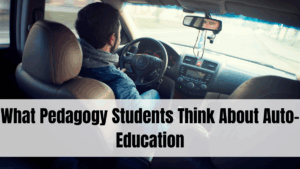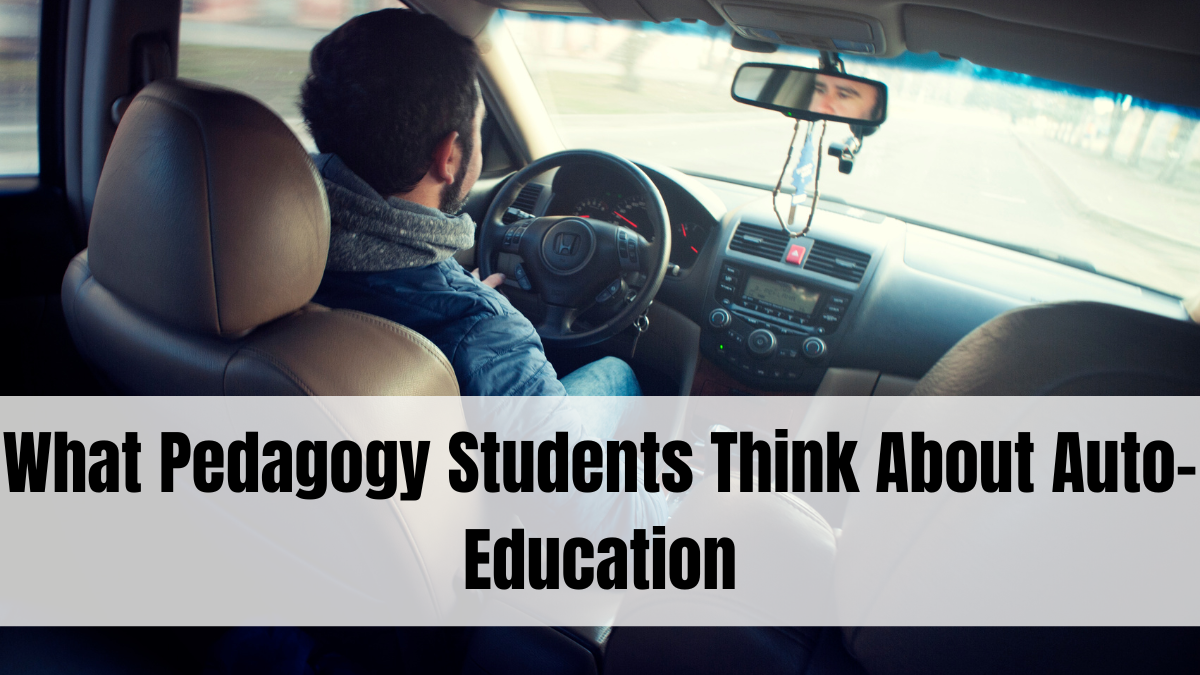Auto-education — the art of self-learning — is no longer a fringe educational model. It has become central to modern pedagogy and lifelong learning. But how is it received by those who are training to become educators themselves? A growing body of research is beginning to reveal fascinating insights into student views on autoeducation, particularly among pedagogy students who study learning theory and practice professionally.
Their reflections offer not just opinions, but also potential roadmaps for transforming how classrooms are run, how learners are guided, and how autonomy is balanced with support.

What Is Auto-Education in the Pedagogical Context?
Autoeducation refers to self-directed learning, where individuals take responsibility for their learning path, pace, and resources. In the context of teacher training, pedagogy students explore autoeducation both as a personal tool and as a professional strategy to empower their future students.
Through experiential tasks, reflection journals, and independent projects, they learn how self-education:
-
Promotes deeper, personal engagement with content
-
Fosters lifelong learning habits
-
Encourages critical thinking and metacognition
-
Respects individual learning styles and rhythms
These students don’t just read about autoeducation—they practice it as part of their formation.
Survey Insights: Student Attitudes and Experiences
A recent study surveyed final-year pedagogy students across multiple universities. Their responses offered rich data on student views on autoeducation, including:
-
82% agreed that autoeducation improved their critical thinking skills
-
75% said it increased their confidence in managing time and tasks
-
64% felt it helped them retain information better than traditional lectures
-
However, 48% admitted struggling with motivation or direction without clear guidance
These findings highlight both the benefits and challenges of self-led learning, especially in environments where accountability is traditionally external.
Practical Applications of Autoeducation by Future Teachers
Pedagogy students not only learn about autoeducation for themselves — they also plan to implement its principles in their future classrooms.
Some of their proposed methods include:
-
Project-based learning with student-chosen topics
-
Flipped classrooms, where students prepare content independently before class
-
Learning contracts that allow students to set goals and choose resources
-
Reflection journals and portfolios instead of standard exams
These approaches reflect a belief that self-guided learning fosters ownership, responsibility, and authentic curiosity — all vital for long-term success.
Challenges Identified by Students
While most feedback was positive, the study also uncovered critical challenges facing autoeducation learners:
-
Lack of feedback when learning in isolation
-
Overwhelm due to too many learning resources
-
Self-doubt about the correctness of their understanding
-
Procrastination when deadlines are too flexible
These issues suggest that successful autoeducation often needs scaffolding: guidance, structure, and periodic instructor input to prevent learner burnout or confusion.
The Emotional Side of Autoeducation
An often-overlooked insight from student views on autoeducation is the emotional experience tied to it. Students reported:
-
A greater sense of pride in self-achieved milestones
-
Occasional stress when self-learning led to dead ends
-
Increased curiosity and willingness to explore “non-tested” topics
-
Development of resilience when facing complex problems solo
This emotional engagement leads to stronger intrinsic motivation — one of the key goals of any meaningful education.
FAQs
What do pedagogy students say about autoeducation?
They view it as empowering, practical, and aligned with real-world learning. Most find it boosts their confidence, critical thinking, and adaptability.
What challenges do students face with autoeducation?
Common difficulties include lack of structure, motivation dips, and uncertainty without regular feedback or peer comparison.
Is autoeducation suitable for classroom teaching?
Yes. Many future teachers are planning to integrate its principles through student-led projects, flipped classrooms, and self-reflection tools.
How does autoeducation impact student emotions?
Students feel more engaged, curious, and proud of their achievements, but they also face moments of doubt and stress, especially without external guidance.
Why is it important to study student views on autoeducation?
Understanding how learners perceive and use autoeducation helps educators design better support systems and create balanced, flexible learning environments.
Click here to know more.




